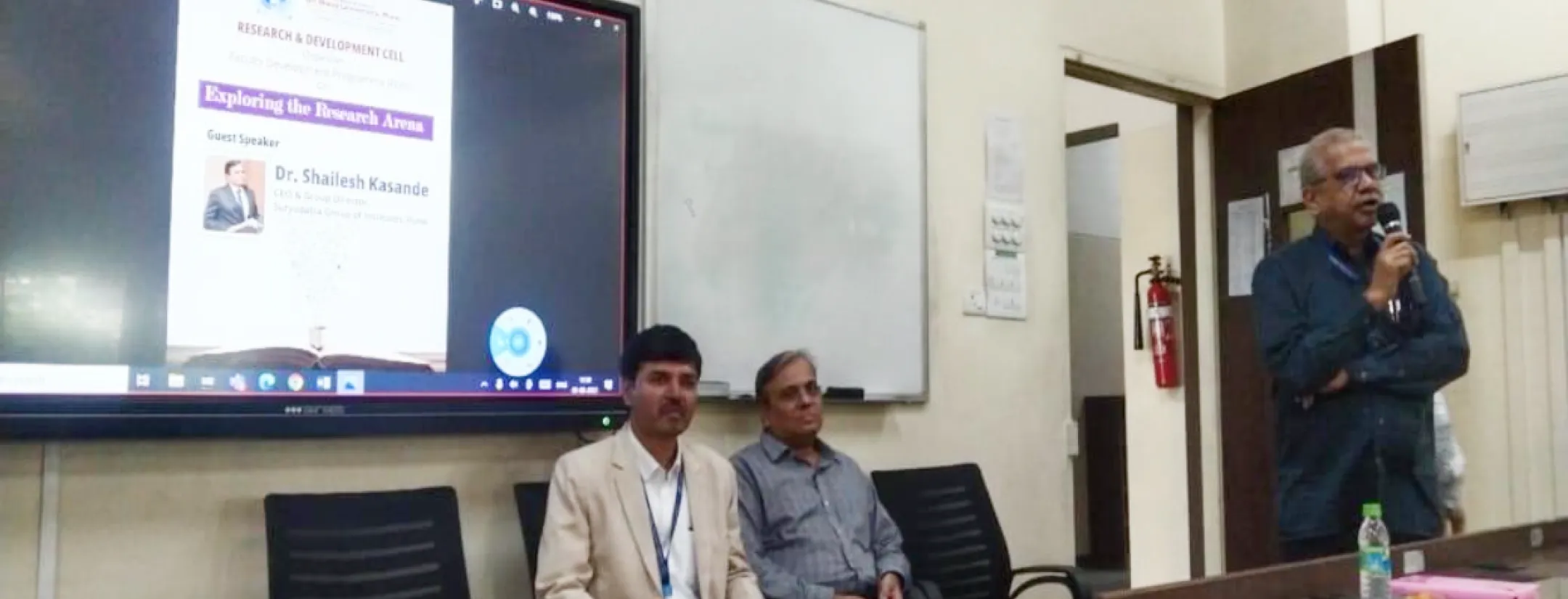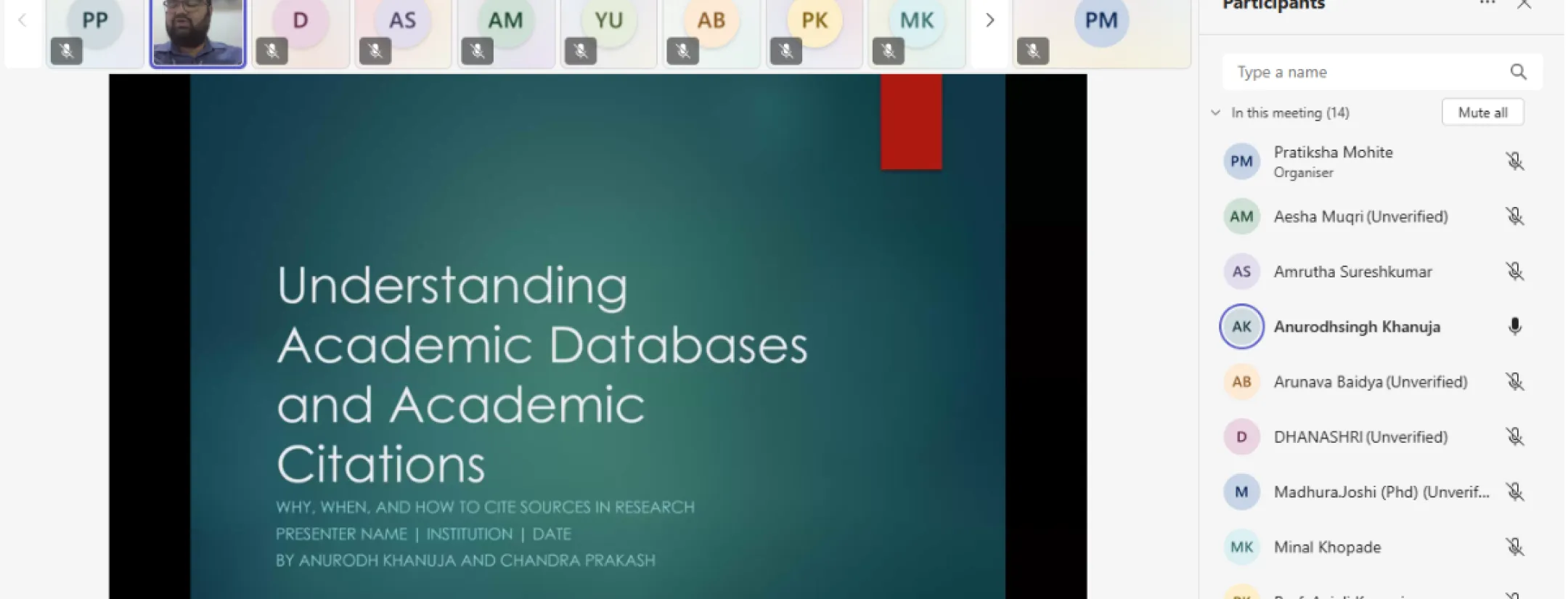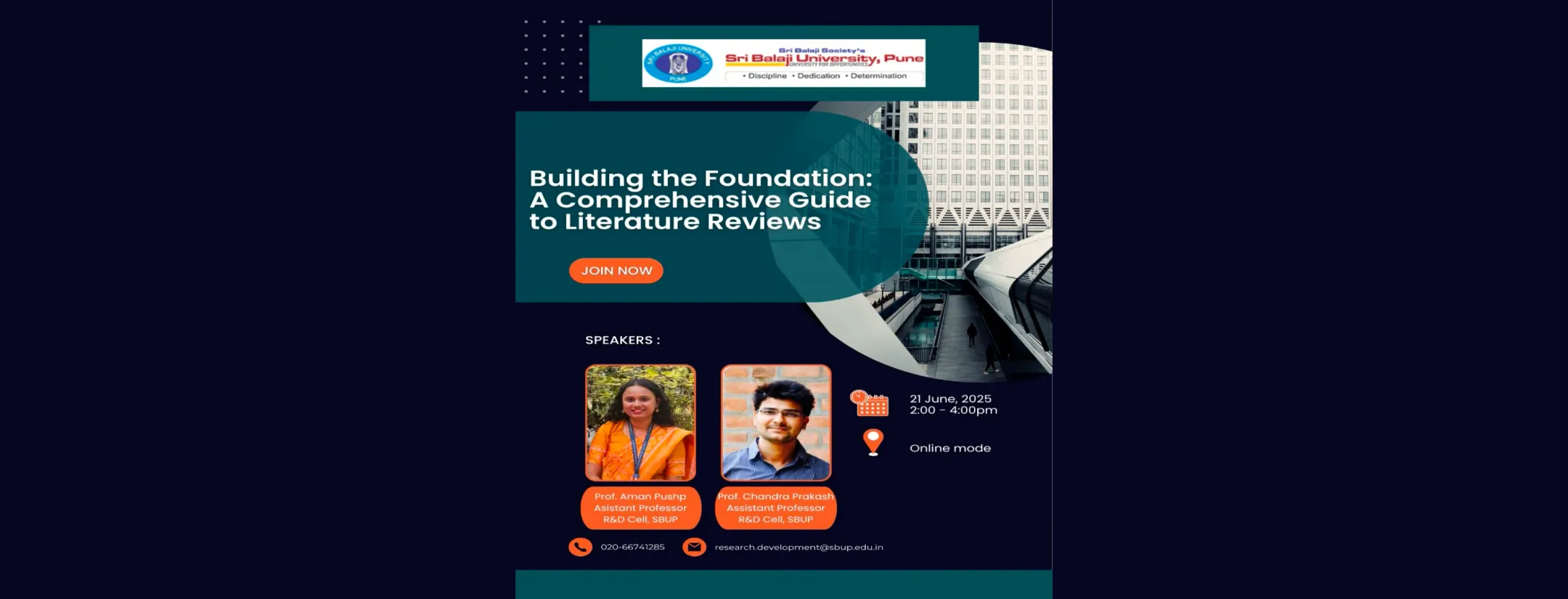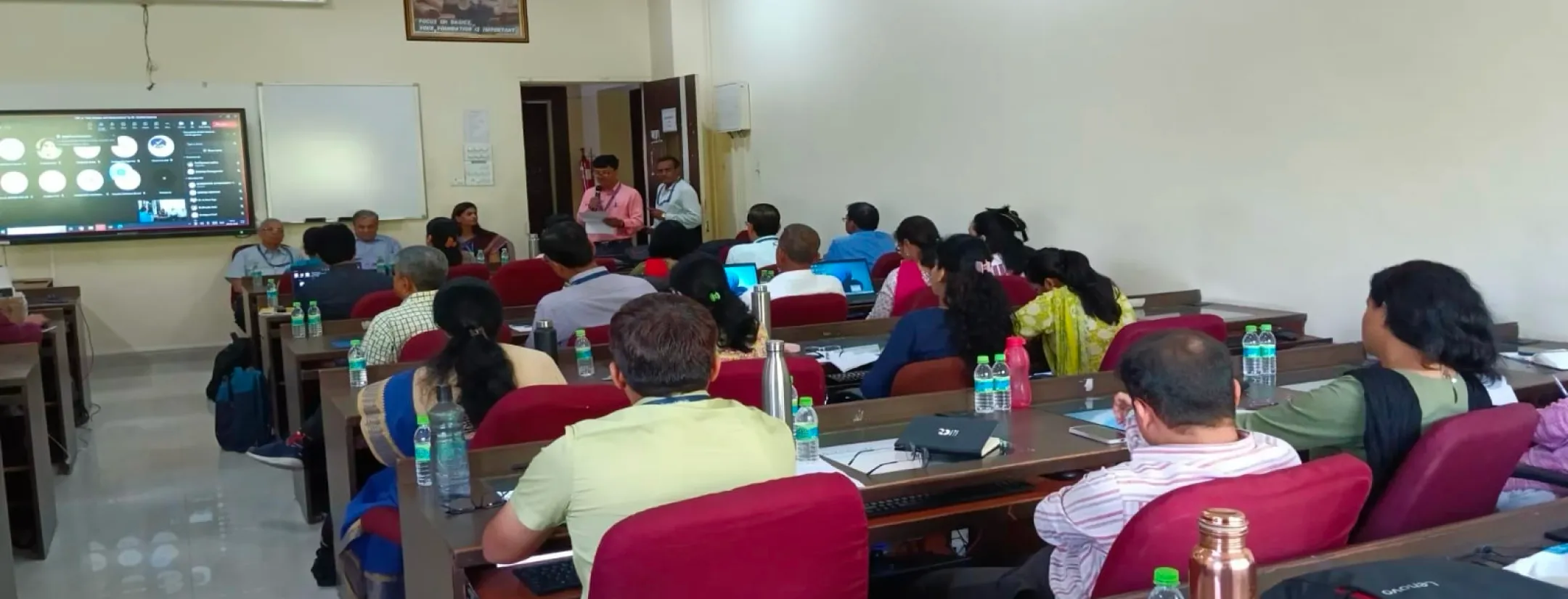Short-Term FDPs
Short-Term FDPs

Our Short-Term Faculty Development Programs provide intensive training in specialized research methodologies, analytical techniques, and academic competencies. These programs are intended for research scholars and faculty members looking to develop or improve research capabilities within a shorter time frame. The shorter period permits intensive learning activities for specific areas of the research process.

Research Methodology & Statistical Modeling
This program gives a thorough insight into research paradigms and statistical modeling methods applied in management research. Participants are exposed to different research paradigms, designs, and approaches, including their applications in a variety of research settings. The program gives an overview of major statistical ideas and methods, ranging from descriptive statistics and hypothesis testing to multivariate analysis and modeling. Through exercise and real-life examples, participants gain a strong foundation in methodological decisions and their effects on research quality and validity.

SPSS Foundations – Descriptive, NOVA, Regression
This interactive course introduces participants to the Statistical Package for Social Sciences (SPSS) and its uses in data analysis. From data entry and management, the course advances to simple statistical analysis, such as descriptive statistics, cross-tabulation, and graphical presentation. Participants are taught to perform inferential analyses like t-tests, ANOVA, correlation, and regression, and understand their results when framed within research questions. By using real-world datasets through structured practice, participants master SPSS use in data analysis for rigorous research projects.

Reference Management Tools - Zotero, Mendeley
This hands-on program is designed with an emphasis on effective literature management through the use of reference management tools like Zotero and Mendeley. Participants are taught how to manage their research literature, produce bibliographies, and cite using different styles of academia. The program includes capabilities like PDF annotation, note-taking, and cross-device synchronization, which helps improve participants' literature review activities. Participants also learn the collaborative capabilities of such tools, allowing them to collaborate with colleagues and co-authors and share references and annotations, thus enabling collaborative research work.

Research Proposal Writing + Peer Review Practice
This in-depth module is aimed at creating high-standard research proposals for doctoral dissertations, grant proposals, or organizational research studies. Participants master the skill of stating precise research goals, establishing strong theoretical frameworks, designing proper methodologies, and setting realistic timelines and resource needs. The module places strong emphasis on ensuring that all the elements of the proposal are harmonized to produce a coherent, persuasive research plan. One distinctive aspect of this module is the inclusion of peer review practice, in which participants review one another's proposals based on standard review criteria. Through this mutual feedback process, participants' proposals are enhanced, as well as their critical evaluation capacity, to enable them for both parties of the peer review process in scholarly publishing.

Research Ethics, Plagiarism & Turnitin Use
This course covers the ethical aspects of research and scholarship in writing, with a focus on integrity, honesty, and responsibility in research. The participants study some of the ethical problems in research, such as informed consent, confidentiality, integrity of data, and authorship. The course examines plagiarism, its types and penalties, and how Turnitin can be used to guarantee originality in academic writing. By using case studies and exercises, participants gain a better understanding of ethical research practice and academic integrity strategies.

Bibliometric Analysis with VOSviewer + R Studio
This in-depth course familiarizes the members with the science of bibliometrics and how it can be applied to chart knowledge domains and research trends. With the help of VOSviewer and R Studio, the participants are taught how to perform advanced bibliometric analysis, such as co-citation analysis, bibliographic coupling, co-authorship networks, and keyword co-occurrence mapping. The course offers instruction in collecting data from large bibliographic databases, cleaning and preprocessing the data, visualizing bibliometric networks, and interpreting the results. Participants are provided with insights to learn identifying emerging research fronts, key authors and publications, and possible research gaps in their fields of study.
Empowering Educators: Faculty Development Programs (FDPs)
SBUP is committed to continuous learning and academic excellence through its Faculty Development Programs (FDPs). These initiatives are designed to enhance the teaching, research, and professional capabilities of faculty members across disciplines. The programs cover emerging trends, pedagogical innovations, research methodologies, and industry-relevant knowledge to keep educators updated and future-ready.

Exploring the Research Arena
Designed to empower undergraduate faculty with foundational research knowledge, this FDP was centered around demystifying the term "research" and its many dimensions.

Demonstration of NVivo Application
This FDP focused on introducing faculty to NVivo, a premier tool for qualitative data analysis (QDA). Ms. Kaushik, a seasoned NVivo trainer, provided practical demonstrations with real-world use cases.

Efficient Uses of Research Databases & Citation Analysis
This workshop was curated to train researchers in using academic databases and managing citations through structured strategies.

Building the Foundation: A Comprehensive Guide to Literature Reviews
This session was designed to help Ph.D. scholars and faculty improve their literature review skills—an essential component of any research paper or thesis.

Data Analysis and Interpretation
Sri Balaji University, Pune (SBUP) organized a comprehensive Faculty Development Programme (FDP) on “Data Analysis and Interpretation” under the aegis of its Research & Development Cell.


